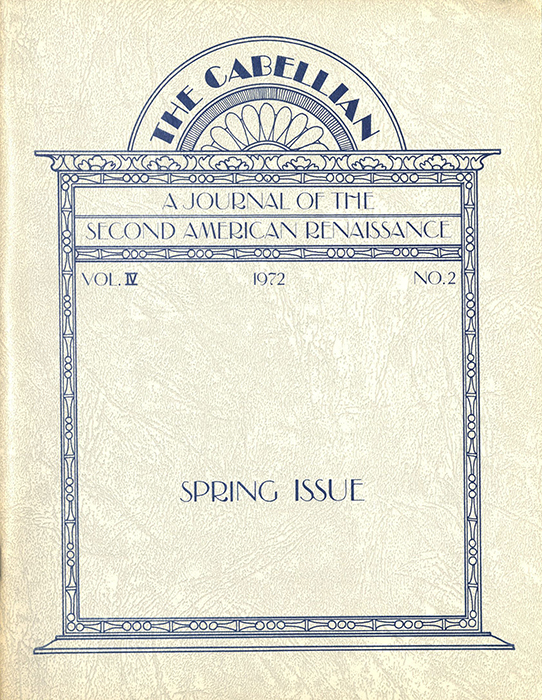
Special Collections and Archives, VCU Libraries
The late 1960s were an exciting time for scholars and fans of James Branch Cabell. In 1967, the James Branch Cabell Chair in Literature was endowed in the Department of English at the University of Virginia. The following year, in March 1968, Richmond Professional Institute (RPI) and the Medical College of Virginia (MCV) merged to form Virginia Commonwealth University, where ground was broken and construction begun on James Branch Cabell Library. James Branch Cabell’s personal library was to be donated to the new VCU Library, and Maurice Duke had completed his dissertation representing the contents and organization of Cabell’s books.
In the midst of this activity, The Cabell Society was formed on January 15, 1968 with eighty-five founding members. By September 30, 1968, it reported having 133 members in thirty states, the District of Columbia, the Virgin Islands, Canada, England, Scotland and Japan. Numerous university libraries signed up to receive the Cabell Society’s new journal, The Cabellian.
From the beginning, The Cabell Society was a literary society. Julius L. Rothman, professor of English at Nassau Community College, served as executive secretary of The Cabell Society and editor of their publication, The Cabellian. Joe Lee Davis, professor of English at the University of Michigan, served as the Cabell Society’s first president. In addition to publishing The Cabellian, in 1968 the Society organized the first ever Cabell seminar to be held at the annual convention of the Modern Language Association. In 1972, another MLA seminar on Barth, Cabell, Heller and Vonnegut was organized and led by William Godshalk, University of Cincinnati.
The Cabellian: A Journal of the Second American Renaissance (1968-1972) was published in four volumes with two issues each and may be read on VCU Scholars Compass. The Silver Stallion website lists the contents of the eight issues. The final issue of The Cabellian (Spring 1972) included an account of Louis Cheslock’s opera in one-act based on Cabell’s play, The Jewel Merchants. Cheslock dedicated the opera to his friend and fellow Cabell advocate, H. L. Mencken.